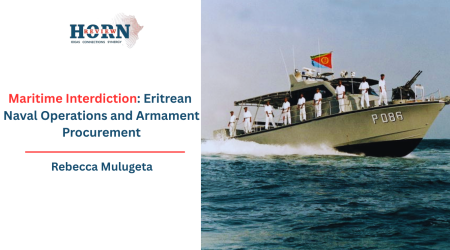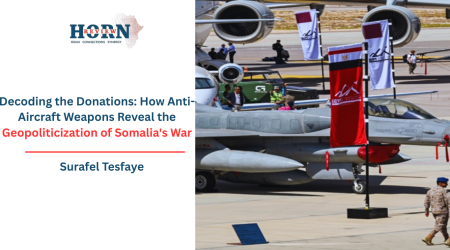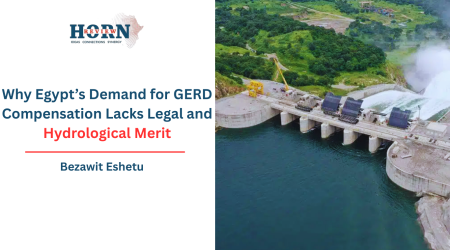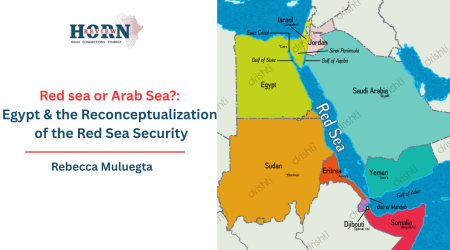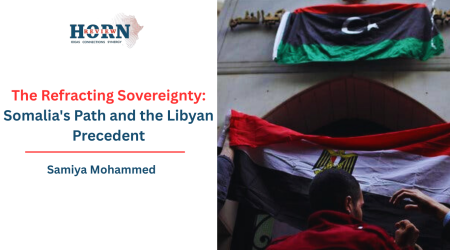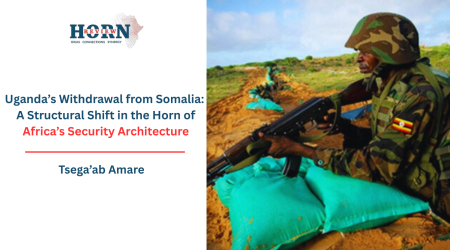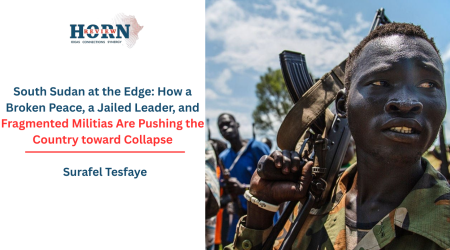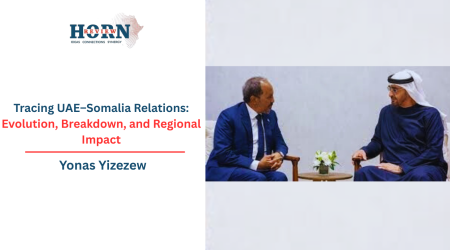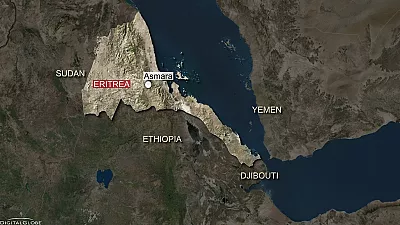
28
Jul
Rising Tensions: Why Global Powers Must Act to Avert War in the Horn of Africa
The Horn of Africa is entering a dangerous phase as relations between Ethiopia and Eritrea sour once more. Border incidents, hostile rhetoric, and mutual accusations are raising fears of renewed conflict. Another war between the two neighbours would devastate the region and disrupt the Red Sea corridor, a route vital to global trade. A critical global trade artery connecting Asia, the Middle East, and Europe, and instability along this coast would reverberate far beyond East Africa. It would also inflame already fragile situations in Sudan, Somalia, and South Sudan, sending new waves of refugees toward Europe and the Middle East.
The stakes are high because Ethiopia and Eritrea sit at the heart of these interlocking crises. Addis Ababa has been clear that it seeks a negotiated solution to its maritime constraints. Landlocked since Eritrea’s secession in 1993, Ethiopia depends almost entirely on Djibouti for trade, an economic and security vulnerability that Ethiopian leaders of every stripe have viewed as a national concern. When Prime Minister Abiy Ahmed described sea access as an “existential” issue, Asmara reacted with alarm, fearing a challenge to its sovereignty over ports such as Assab, which once belonged to Ethiopia. But Ethiopia has consistently stressed respect for Eritrean borders and has pursued deals with Djibouti and Somaliland instead. Despite regional unease over the Somaliland agreement, Addis portrays its Red Sea policy as economic diversification, not territorial ambition.
The deeper problem lies in Eritrea’s response. Asmara has positioned itself as a regional counterweight to Ethiopia, cultivating closer ties with Egypt and Somalia and quietly backing Ethiopian rebel factions. Eritrean troops remain inside Ethiopian territory, despite official denials, and former Tigrayan leaders, who have long been hostile to the federal government, are reportedly receiving Eritrean support. Eritrea has also mobilized forces along the border, framing Ethiopia’s trade diplomacy as a threat. Addis Ababa, in turn, has avoided mass mobilization, focusing instead on internal security challenges in Amhara and Tigray while keeping channels for negotiation open. Its military remains capable, but officials signal no interest in confrontation.
This contrast in posture is sharpening wider regional fault lines. Ethiopia’s previous port agreements have strained relations with Somalia, prompting IGAD to call for de-escalation. Meanwhile, Eritrea has moved closer to Egypt, which has long been at odds with Ethiopia over Nile waters. The October 2024 Asmara summit between Eritrea, Egypt, and Somalia was widely read in Addis as an emerging alliance against Ethiopian interests. With Sudan’s civil war raging nearby and Yemen’s conflict threatening shipping lanes, the Horn is increasingly seen as a single security theatre where local rivalries feed into broader tensions.
Global powers cannot afford to treat this as a distant problem. The Red Sea remains critical to their economic and strategic interests, and another Ethiopia-Eritrea war would push the region into deeper chaos. The humanitarian toll of the Tigray conflict—hundreds of thousands dead and millions displaced—remains fresh, and a new war would likely dwarf those consequences. European governments, already strained by refugee crises, view stability in the Horn as a core interest, while the United States still regards Ethiopia as a key partner in counterterrorism and regional stability.
Each outside power, however, approaches the Horn differently. Washington has shifted toward a pragmatic, trade-driven policy, with limited leverage after years of aid cuts and travel bans. Brussels combines economic incentives with governance and conflict-prevention programs, deploying a special envoy with a mandate that ranges from transitional justice in Ethiopia to regional early warning systems. France and the United Kingdom pursue their own strategic interests, with military facilities in Djibouti and Kenya and security cooperation against piracy and migration.
China and Russia are shaping events more subtly. Beijing prioritizes infrastructure and Belt and Road projects, avoiding overt political involvement while maintaining close ties with both Addis Ababa and Asmara. Russia has gone further, maintaining its go-to status for arms sales and exploring Red Sea basing options, while also aiding Ethiopia in building up its defence. Both powers prefer stability but remain unlikely to mediate actively unless their commercial or security interests are threatened.
Each of these powers, in spite of having differing goals in the region, has common interests in its stability and the avoidance of war. the international community, therefore, stands united in the goal of mediating between Asmara and Addis Ababa.
Preventing escalation will require coordinated diplomatic pressure and practical incentives. Direct talks between Addis Ababa and Asmara remain essential. International partners should reassure that its sovereignty is not up for discussion, while reassuring Ethiopia that its coastal concerns can be addressed through legal agreements and investment in shared port infrastructure. Eritrea, for its part, must see diplomatic pressure to withdraw its forces from Ethiopian soil and halt support for rebel groups. Targeted sanctions and the promise of economic engagement can help reinforce these messages.
Regional institutions should play a central role. The African Union and IGAD can provide mediation platforms, while trusted neighbors such as Kenya, Saudi Arabia, or Turkey could quietly convey security assurances. External powers should resist one-sided narratives, urging both governments to commit to dialogue while privately discouraging Eritrean brinkmanship. The tools exist: diplomatic pressure, economic incentives, and multilateral forums, to defuse this crisis if deployed quickly and consistently.
However unlikely, Global powers, with the aid of Gulf states and regional organizations, should facilitate the revival of the 2018 peace agreement or the making of a new framework that addresses the concerns of both Eritrea and Ethiopia.
The alternative, a return to war, would be disastrous for the Horn of Africa and for the global economy. The Red Sea is too vital, and the humanitarian costs too grave, for the international community to allow old rivalries to spiral into open conflict again.
By Mahder Nesibu, Researcher,Horn Review

